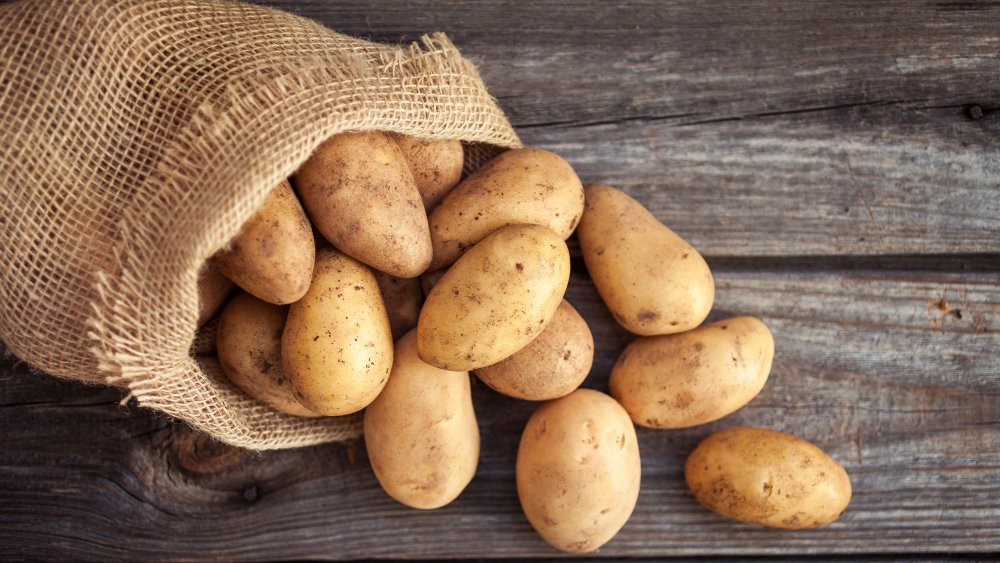You Should Never Bake A Potato In Foil. Here's Why
Baked potatoes are not just an easy and quick weeknight meal when you're short on time — they're also packed full of fiber and rich nutrients like flavonoids, carotenoids and phenolic acid that serve as antioxidants. Not to mention, potatoes contain a special resistant starch that, instead of being fully broken down and absorbed by the body, makes its way to the large intestine to serve as nutrients for the good bacteria in the gut (via Healthline). Even Hollywood starlet Jennifer Lawrence is a fan of the starchy spud (via Kanguru).
Potatoes have been around for a long time. The Inca people in Peru were the first to grow these tubers, beginning around 8,000 B.C., and today, it's the fourth-largest food crop in the world. Potatoes are easy to grow. In fact, they are so easy to cultivate, they are also the first vegetable to be grown in space (via Potatoes USA). Potatoes are pretty awesome; however, how you cook a potato can contribute to not only its taste, but its nutritional value and safety.
According to Idaho Potato, you should never bake a potato in foil. So why do people use this method, and what's wrong with it?
The skinny on cooking spuds in foil
Baking potatoes in aluminum foil is common practice. Maybe you grew up with your mom and dad baking potatoes this way, or you went to a restaurant and they were served like this. Well, now time to think twice before wrapping your tater.
While aluminum foil does lock in the heat, it also traps moisture, which results in a soggy, steamed potato instead of a baked potato. And while some people argue that foil helps the potato cook faster because the aluminum conducts heat, others contend that it actually takes longer to bake a potato in foil unless you heat the foil before wrapping the potato. But even if you have all the time in the world, cooking potatoes in foil is more expensive than not using foil. In fact, it has been calculated that you could save an average of $3.00 per 90-count carton of potatoes if you did away with wrapping the potato in foil altogether.
And finally, this method of baking potatoes can be risky. State Food Safety warns that it could be dangerous to bake a potato in foil if you allow the potato to cool down to a dangerous temperature while it is still wrapped in the aluminum. This could lead to the potential growth of the bacteria that causes botulism if the potato's temperature is anywhere between 41 and 135 degrees Fahrenheit.
So next time you make a baked potato, skip the foil and the fuss.

